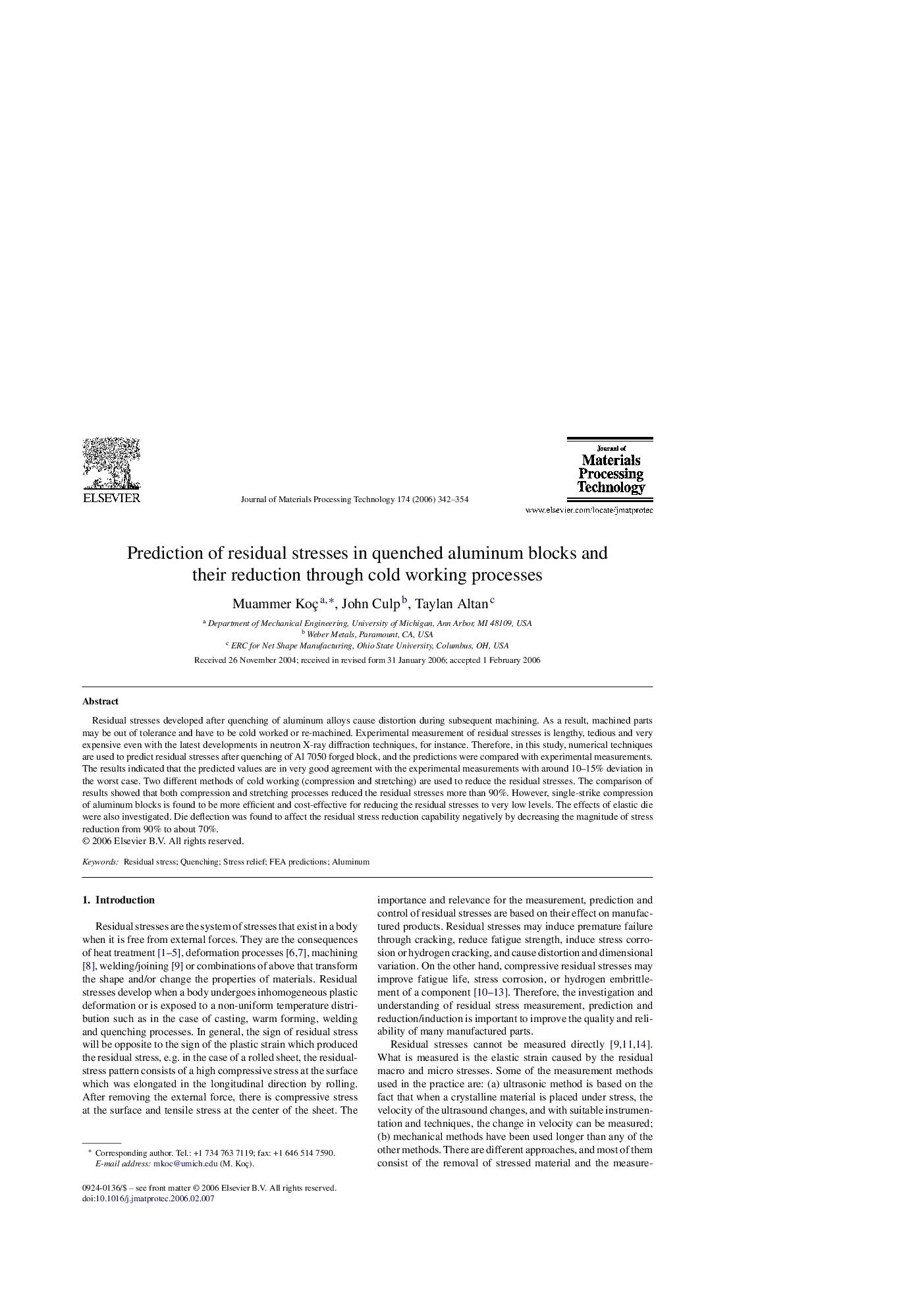| کد مقاله | کد نشریه | سال انتشار | مقاله انگلیسی | نسخه تمام متن |
|---|---|---|---|---|
| 796606 | 1466790 | 2006 | 13 صفحه PDF | دانلود رایگان |

Residual stresses developed after quenching of aluminum alloys cause distortion during subsequent machining. As a result, machined parts may be out of tolerance and have to be cold worked or re-machined. Experimental measurement of residual stresses is lengthy, tedious and very expensive even with the latest developments in neutron X-ray diffraction techniques, for instance. Therefore, in this study, numerical techniques are used to predict residual stresses after quenching of Al 7050 forged block, and the predictions were compared with experimental measurements. The results indicated that the predicted values are in very good agreement with the experimental measurements with around 10–15% deviation in the worst case. Two different methods of cold working (compression and stretching) are used to reduce the residual stresses. The comparison of results showed that both compression and stretching processes reduced the residual stresses more than 90%. However, single-strike compression of aluminum blocks is found to be more efficient and cost-effective for reducing the residual stresses to very low levels. The effects of elastic die were also investigated. Die deflection was found to affect the residual stress reduction capability negatively by decreasing the magnitude of stress reduction from 90% to about 70%.
Journal: Journal of Materials Processing Technology - Volume 174, Issues 1–3, 25 May 2006, Pages 342–354